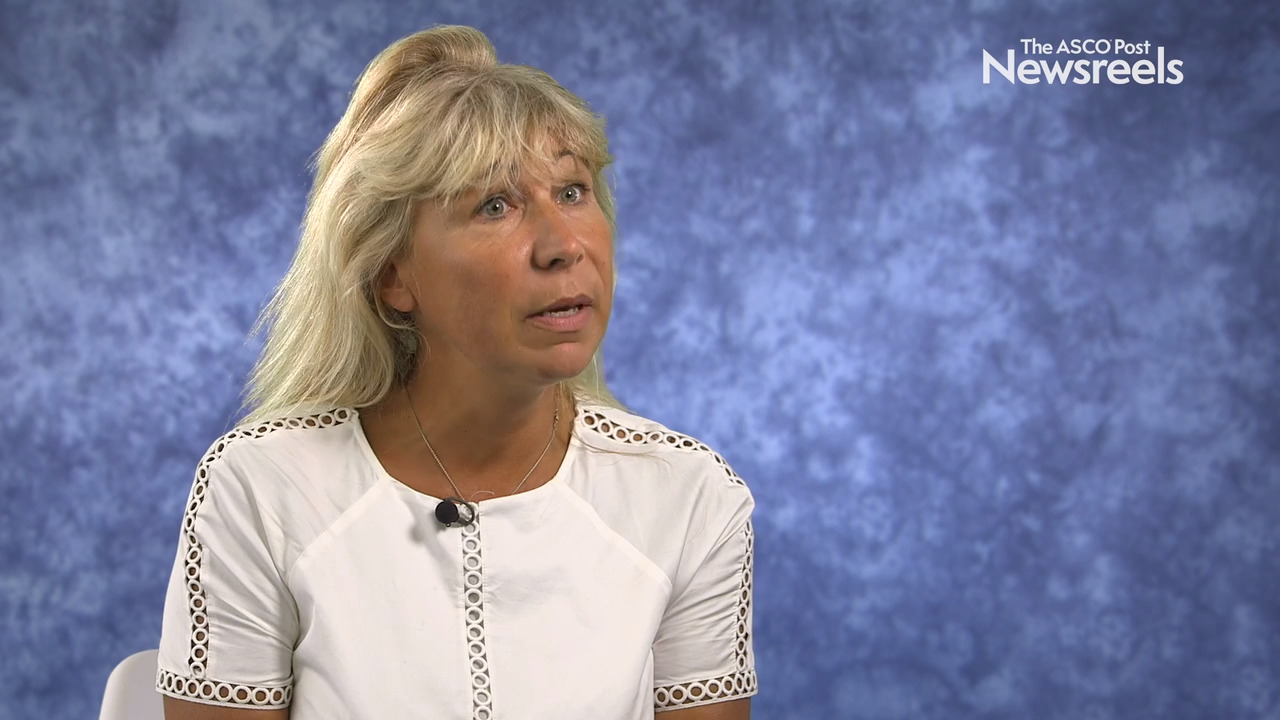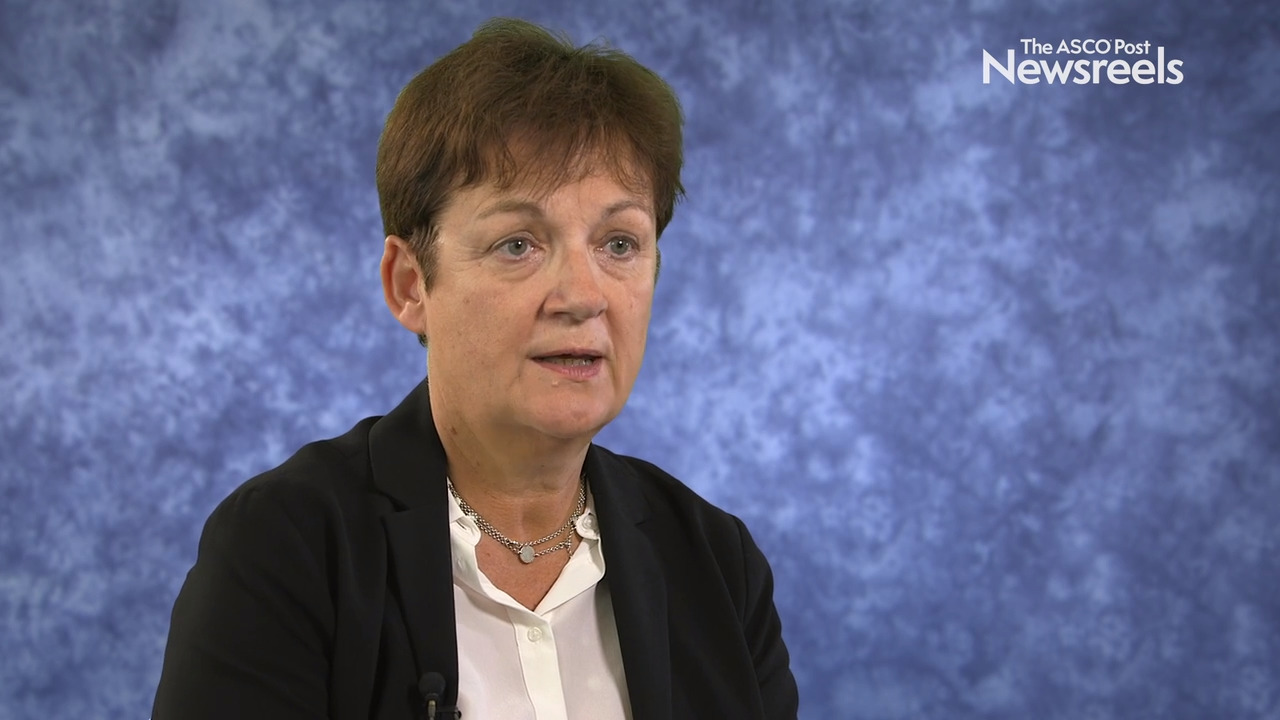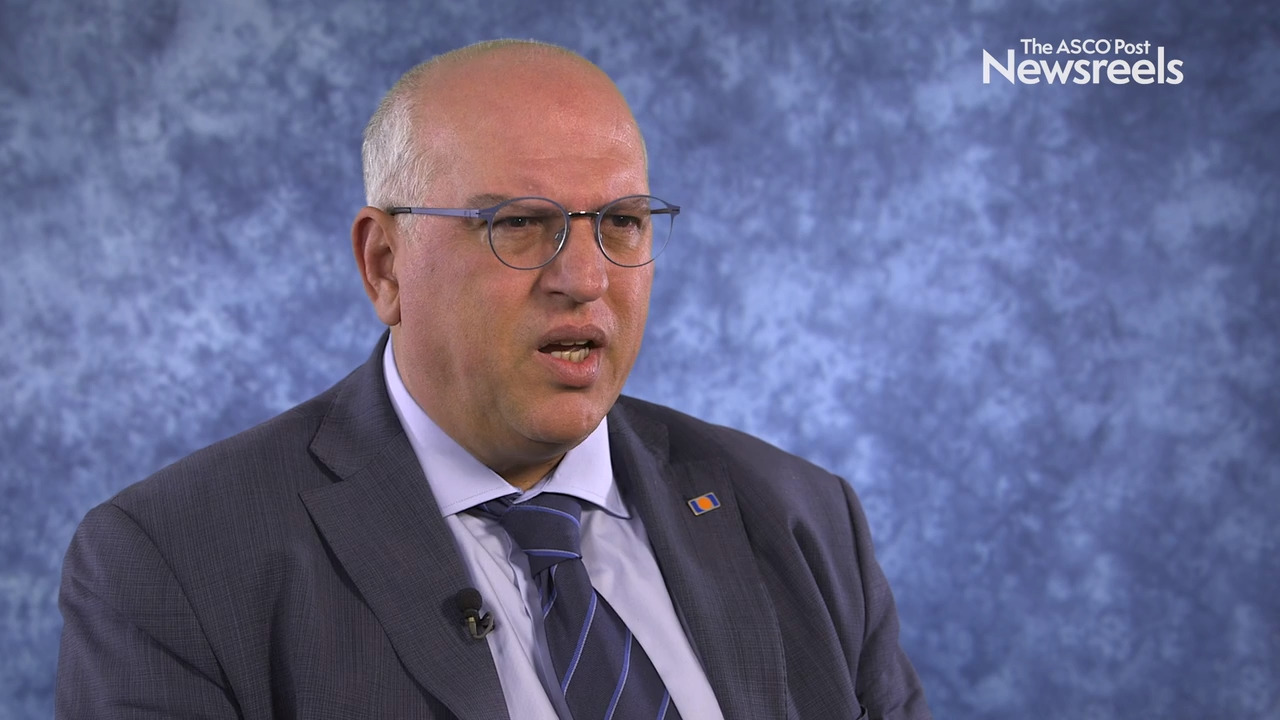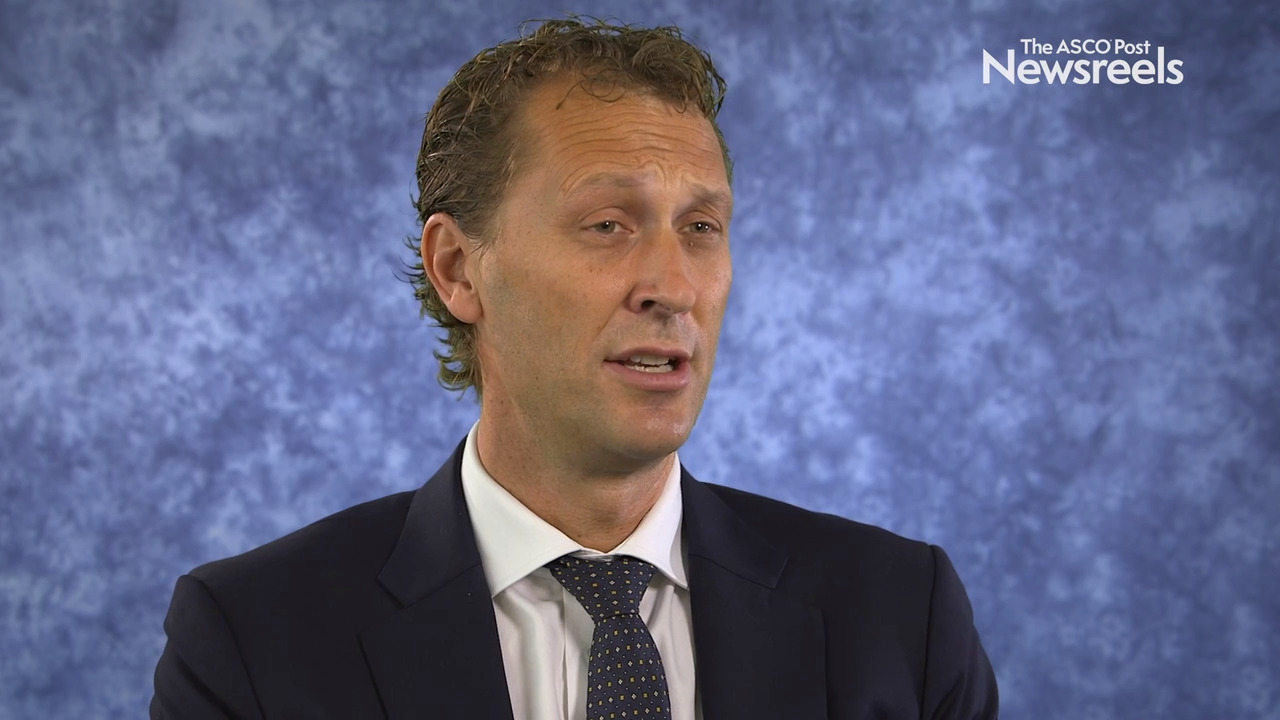Robin L. Jones, MD, MBBS, on Advanced Angiosarcoma: TAPPAS Trial of a Novel Monoclonal Antibody Plus Pazopanib
ESMO 2019 Congress
Robin L. Jones, MD, MBBS, of The Royal Marsden/Institute of Cancer Research, discusses the first phase III study in angiosarcoma, which showed no difference in outcome between pazopanib vs pazopanib plus the novel monoclonal antibody TRC105 (Abstract 1667O).
Suresh S. Ramalingam, MD, of Emory University, discusses results from the final overall survival analysis of the phase III FLAURA trial in EGFR-mutated advanced non–small cell lung cancer, which showed that osimertinib provided a survival benefit vs comparator EGFR tyrosine kinase inhibitor therapy in the first-line setting (Abstract LBA5).
Isabelle Ray-Coquard, MD, PhD, on Ovarian Cancer: Olaparib Plus Bevacizumab
Isabelle Laure Ray-Coquard, MD, PhD, of the Centre Leon Bérard, discusses phase III study findings in patients with newly diagnosed, advanced ovarian cancer who received olaparib plus first-line bevacizumab maintenance treatment. Compared with placebo plus bevacizumab, olaparib improved progression-free survival, with the greatest benefit in women with BRCA mutations and positive homologous recombination deficiency status (Abstract LBA2).
Véronique Diéras, MD, of Institut Curie Paris & Saint Cloud, discusses results from the phase III BROCADE 3 trial, which investigated the PARP inhibitor veliparib in combination with carboplatin/paclitaxel in patients with advanced HER2-negative, germline BRCA–mutated breast cancer (Abstract LBA9).
Paolo A. Ascierto, MD, of the Istituto Nazionale Tumori, Napoli, discusses phase III study findings confirming the superior activity of nivolumab vs ipilimumab in resected stage III/IV melanoma in terms of regression-free survival after a minimum follow-up of 36 months (Abstract 1310O).
Peter Schmid, MD, PhD, of Queen Mary University of London Barts Cancer Institute, discusses pathologic complete response data from a phase III study of pembrolizumab/chemotherapy vs placebo/chemotherapy as neoadjuvant treatment, followed by pembrolizumab vs placebo as 6-month adjuvant treatment for early triple-negative breast cancer (Abstract LBA8).





